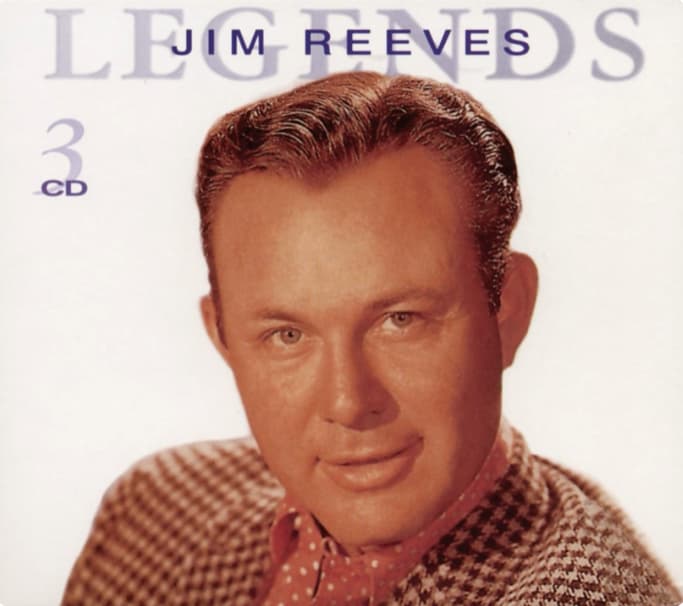
🕯️ The Gentle Vow: How Jim Reeves Captured the Sweet Eternity of Love
Jim Reeves’s self-penned 1954 classic is a tender, yet epic vow of undying devotion, using grand, impossible imagery to confirm a love that will never cease.
There are certain voices from the golden age of country music that, once heard, become an indelible part of your memory. They don’t just sing songs; they whisper secrets to your heart. And for so many of us, the voice of Gentleman Jim Reeves is the very definition of that warm, velvet-smooth sound. No song captures his distinctive, caressing style—which would later become the core of the Nashville Sound—quite as beautifully as “Then I’ll Stop Loving You.”
Released back in the simpler, yet rapidly changing world of 1954, “Then I’ll Stop Loving You” was a shining early success for Jim Reeves, who also wrote the song himself. It reached a respectable peak position of No. 15 on the U.S. Country & Western charts in June of that year, proving that his elegant, intimate delivery could resonate deeply with a country audience still fond of traditional twang. But the modest chart placement hardly tells the tale of the song’s lasting power. This single, issued on the Abbott Records label, was a foundational piece in the career of a man who would tragically be taken from us too soon, but whose legacy would become one of the most enduring in popular music.
The song’s meaning is built on a magnificent, almost poetic structure of absolute impossibility. It’s a grand romantic gesture wrapped in a quiet melody. Reeves doesn’t simply say, “I’ll love you forever.” Instead, he sets up a series of conditions for his love to end—conditions that can never be met. “If there’s water in the desert / Sand out in the sea,” the lyrics begin, “If you were not an angel / Sweet as you can be… Then I’ll stop loving you.” He anchors his eternal devotion to the reversal of nature itself: the earth being up above the stars, or “daisies in the desert, roses in the snow.” It’s an ancient rhetorical device, the Adynaton, used to express a love so vast and certain that only the world turning upside down could bring it to an end. This reflective, nostalgic quality makes it a perfect piece of musical memory. It transports the listener back to slow dances, first loves, and the earnest, deeply-felt promises we made when the world still seemed full of endless possibility.
When you hear Jim Reeves‘s baritone, so rich and warm, delivering these magnificent vows, it’s impossible not to be moved. It’s not the theatrical wail of a heartbroken honky-tonk singer; it is the calm, unwavering assurance of a true Southern gentleman. This particular recording showcases the emerging, lush orchestration of the early Nashville Sound that Chet Atkins was pioneering, moving away from the harsher steel guitar and fiddle toward smoother strings and background vocals. It’s an aural embrace, a three-minute promise you can hold onto, and for those of us who remember when this song first graced the radio airwaves, it is a timeless echo of a golden era of romance.